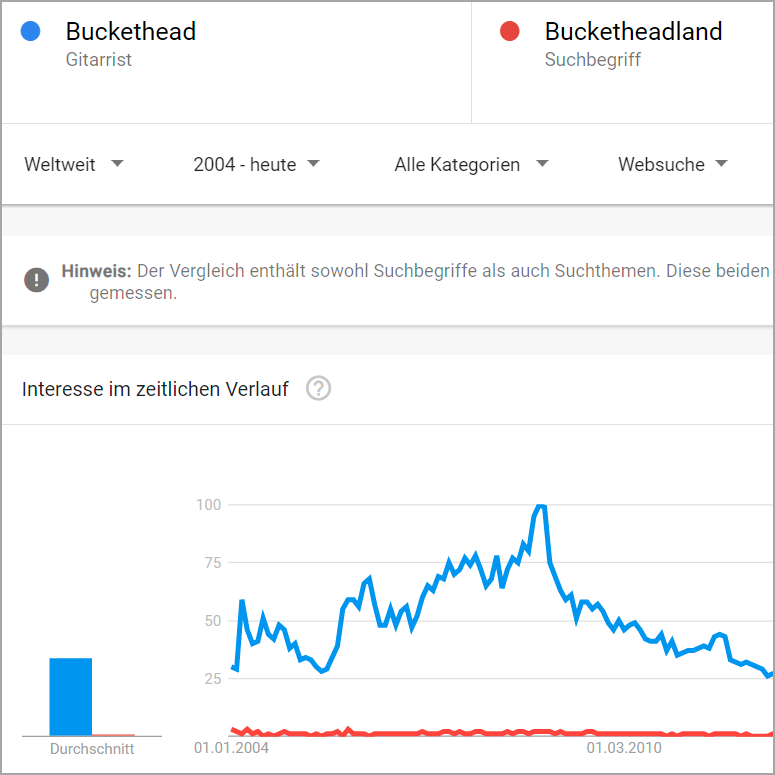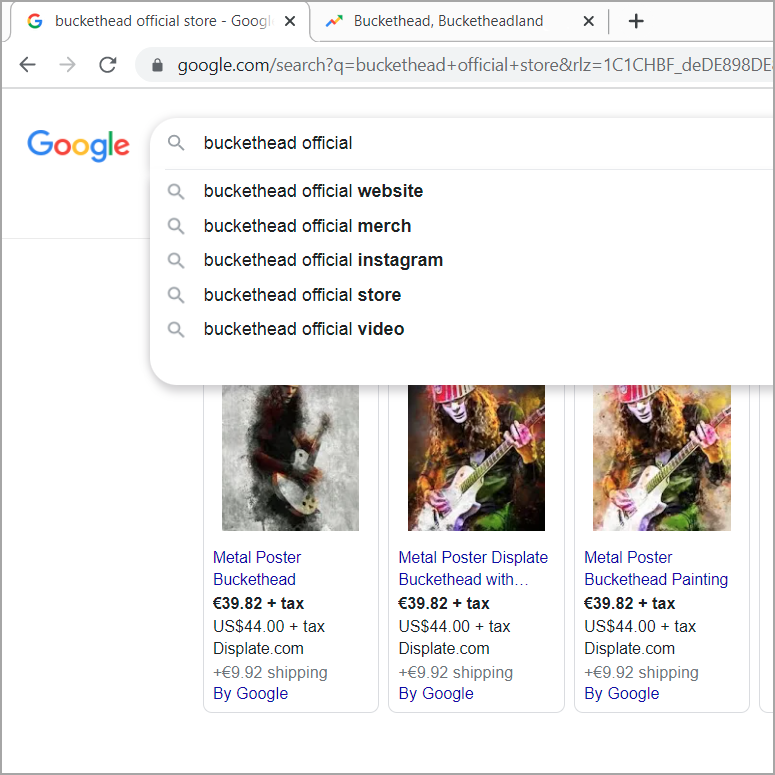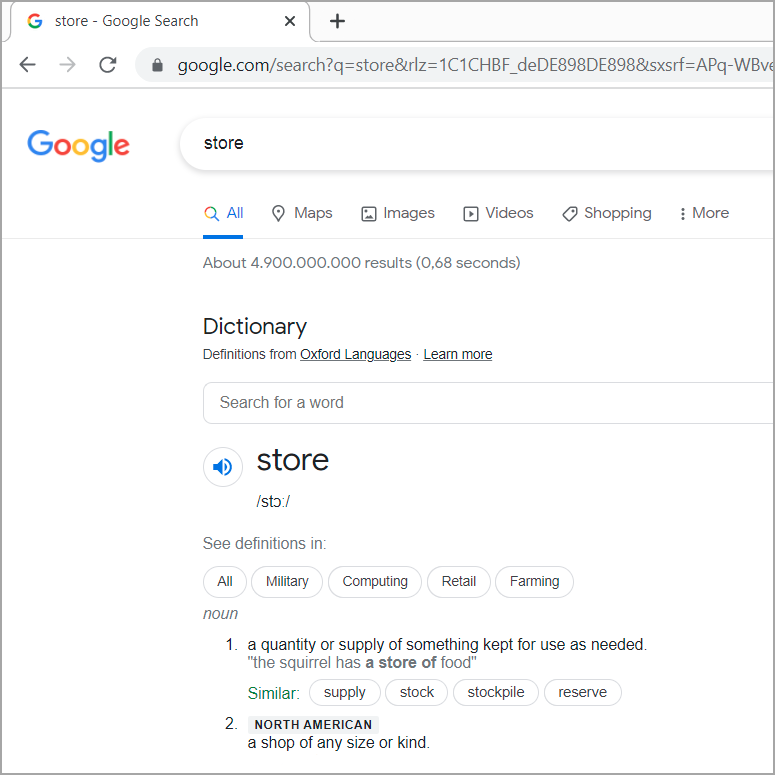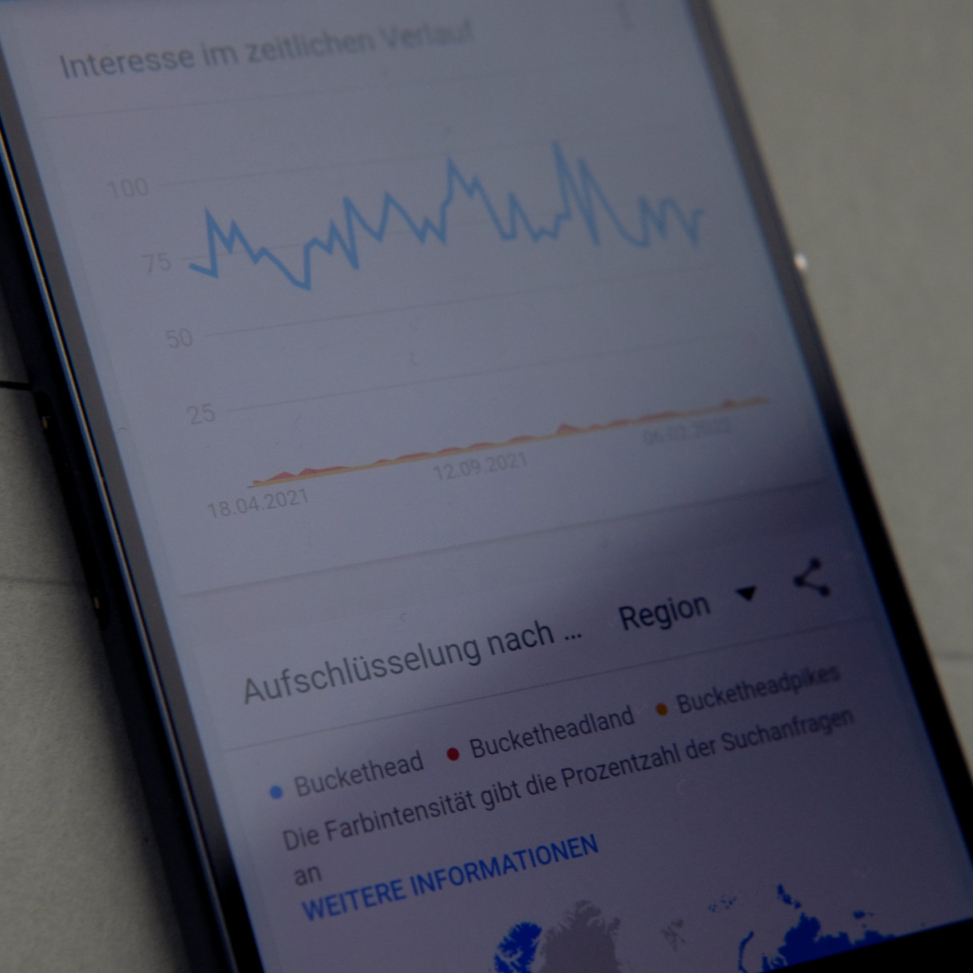A basic, simple web research is the first thing I do – because I need to know the field I am playing in and be aware of other players. At the early stage of a SEO project, it’s not necessary to install Google tags on the website, set up a Google account or use costly SEO software. I think, you can start without being tied to Google. The tools that I use the most are: creativity and common sense.
Additionally, an excess of details can be confusion at this first stage of the decision-making process. By setting myself these limits, I don’t end up overwhelmed by numbers. So … I gather all the details I need to get to a first general conclusion, then implement. Quick and dirty. It’s always possible to expand the project later and do adjustments, if that’s even necessary.
I want to try an imaginary ecommerce project for the guitar player Buckethead as an example, and let’s see with what ideas I come up with.

A peek into Google trends is one part, mainly because it’s fun to analyze the graphs. And in this case, you can see that there was a big spike in the curve in 2008 at the time of the last LP release with the band, we do not talk about. Plus, it is obvious that the other two terms #bucketheadland #bucketheadpikes, which are established terms by the musician, are too much targeted towards insider fans and therefore not broad enough for this project. The first decision is: Let’s use #buckethead as the best option for keyword number one.

If you type a word into the search box, Google will automatically complete common questions or will suggest additional words for a search. I use this to get ideas about what keywords to choose next and see what people might be interested in. In my example with #buckethead Google is suggesting these: website, merch, instagram, store or video to refine the search result – and I was intrigued by the word #official, because it made sense to me. Especially, if you set up a web shop, where you can buy directly from the artist and not through a label or reseller. But I changed my mind and went with an even more suitable option for this case, which is the keyword #store.

NEW! Google is now hiding the search results counts. You have to take an extra step to make the numbers on the Google page visible. Click the button below the search bar on the far right – which is labeled tools (oder Suchfilter).
Just to make sure, I am checking if there is a difference in the use of the terms #shop or #store. Since there is no significant discrepancy, both are good to use.
merch store … 217.000.000 results
merch shop … 270.000.000 results
I do the same procedure, compare the words #store and #merch and the numbers for search results looks like the following.
buckethead official merch … 319.000 results
buckethead official store … 1.220.000 results
My final conclusion is the following. Before installing a store with merch for Buckethead, I would set up a landing page on the base of the following main keywords: #buckethead #store. Plus sprinkle in the additional words #merch and #official to round off the SEO. For the landing page or a webshop, I would go for these options www.buckethead-store.com and www.buckethead.store as the domain address. Actually, I would advise getting both. Since it’s always good to have a backup. Just in case.
Are you interested in the next step and implementing these ideas? You might read about my approach on how to stuff your website with keywords, here.


